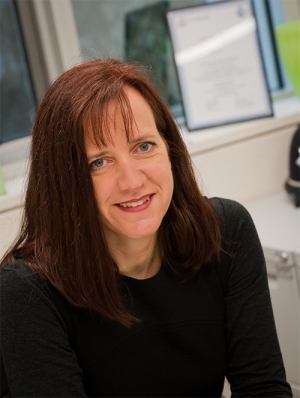Hearing the voice of the vulnerable
Research news
Professor Martine Powell of the Centre for Mental Health and Wellbeing Research and School of Psychology has had a few recent wins on the board.
She and co-workers (Associate Professor Pamela Snow of Monash University and Professor Dixie Sanger of the University of Nebraska-Lincoln) were recently recognised by the American Speech-Language-Hearing Association for their paper on the role of oral language competence in young people who enter the justice system, receiving the 2012 Editor’s Award at the international conference attended by over 20,000 participants.
Furthermore, Martine’s PhD student, Ellie Darwinkel, won the 2013 Neil Archbold Memorial Travel Award and Medal for the best peer-reviewed journal article by a Deakin University higher degree by research candidate.
The subject matter of the research efforts, however, is nothing to celebrate about.
“Our research is primarily aimed at overcoming the barriers to justice faced by abused children and disadvantaged young people and adults - barriers to providing evidence that will be admissible in court and credible to juries” said Professor Powell.
As Martine explains, “It’s difficult to strike a balance between gathering evidence necessary for prosecution without placing an undue level of demand upon the interviewee. The process of interviewing children reminds me of the Aesop fable ‘Killing the goose that laid the golden egg’. In the case of interviewing child victims or witnesses of sexual abuse, the golden egg represents the child witness statement, which in ideal form is a coherent detailed disclosure of abuse incorporating elements needed to prove the offence...”
“But if interviewers try to outreach themselves and demand too much specificity of detail, that children are not developmentally capable of providing, they risk losing everything”
“The primary challenge when interviewing vulnerable witnesses and suspects” Martine explained “is knowing what level of demand is too much”.
So what’s the solution?
“We’ve shown that one way of maximising the detail and accuracy of child witness statements is to provide an environment where the interviewee feels heard, understood and not judged. A sense of disbelief, threat and intimidation must be reduced as much as possible without making the process seem frivolous” explained Professor Powell.
“Jurisdictions have done really well at addressing the intimidating courtroom environment by providing alternative arrangements by which child witnesses can give evidence, for example, enabling videotaped statements to be used as evidence-in-chief, implementing closed-circuit television and providing special hearings where the whole evidence of the witness, including cross-examination and re-examination is recorded pre-trial, and so forth.”
“Our research, and those of others has shown that one of the most critical factors that impacts on the quality and accuracy of a child’s evidence, are the actual questioning techniques used” Martine said.
“For example, using non-leading open-ended questions when interviewing vulnerable witnesses are important, as such questions let the witness tell the story of what happened in their own words, and they should be allowed to do this with as little interruption as possible” she explained.
Professor Powell’s research with police, lawyers, judges and other justice employees continues, and hopefully, her work will continue to improve the chances of justice prevailing.
Share this story
 Professor Martine Powell from the Centre for Mental Health and Wellbeing Research and School of Psychology.
Professor Martine Powell from the Centre for Mental Health and Wellbeing Research and School of Psychology.
